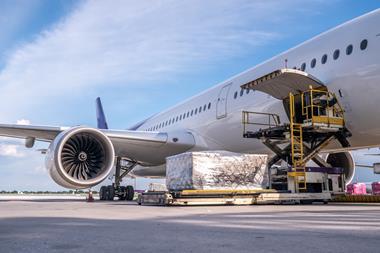The Hong Kong Association of Freight Forwarding and Logistics (HAFFA) has called for the easing of a ban on the transport of e-cigarettes due to its impact on the air cargo sector.
Earlier today, Hong Kong's Legislative Council (LegCo) Panel on Economic Development met to discuss easing the ban on the import of e-cigarettes into Hong Kong to allow the use of sea transport if the products are being transhipped through Hong Kong.
However, HAFFA called for road transport to also be allowed to be used for the transhipments, saying there was not enough sea capacity to meet demand.
HAFFA chairman Gary Lau said: "The government mentioned at the meeting that the authorities intend to first ship e-cigarette products from the Hong Kong International Airport Logistics Park in Dongguan to Hong Kong International Airport via the Sea-Air Transshipment Facilitation Scheme, and then export them overseas.
"The overall shipping capacity under this Sea-Air Transshipment Facilitation scheme is only about 4-5% of the demand for electronic cigarette products which is a drop in the ocean.
"This cannot come close to coping with the huge export volume of electronic cigarettes."
HAFFA said that the ban on the import of e-cigarettes was one of the reasons behind the double-digit percentage declines in air cargo volumes seen at Hong Kong International this year.
“In addition to factors such as the global economy, the sluggish epidemic situation, and the sharp reduction in cross-border land transport capacity, one of the main reasons for the decline is the loss of e-cigarette product transshipment business from the Mainland," said Lau.
"Most of the Mainland-produced e-cigarette goods originally exported through Hong Kong airport must now be exported overseas through Macau or South Korea. The government’s ban on transshipment of e-cigarettes has seriously and negatively impacted the industry.”
The import ban was originally introduced to stop the product entering the local market.
"HAFFA earlier submitted a proposed process for the safe transportation of e-cigarette products across borders to the Transport and Logistics Bureau, which is designed to prevent such goods from entering the local black market," added Lau.
"The association remains ready to discuss the details of the plan with the government at any time, and hopes the authorities will implement a trial as soon as possible in order to resume the land-to-air transshipment of e-cigarette products, thereby saving the freight logistics industry and allowing us to restore a valuable sector of the cargo industry.”














